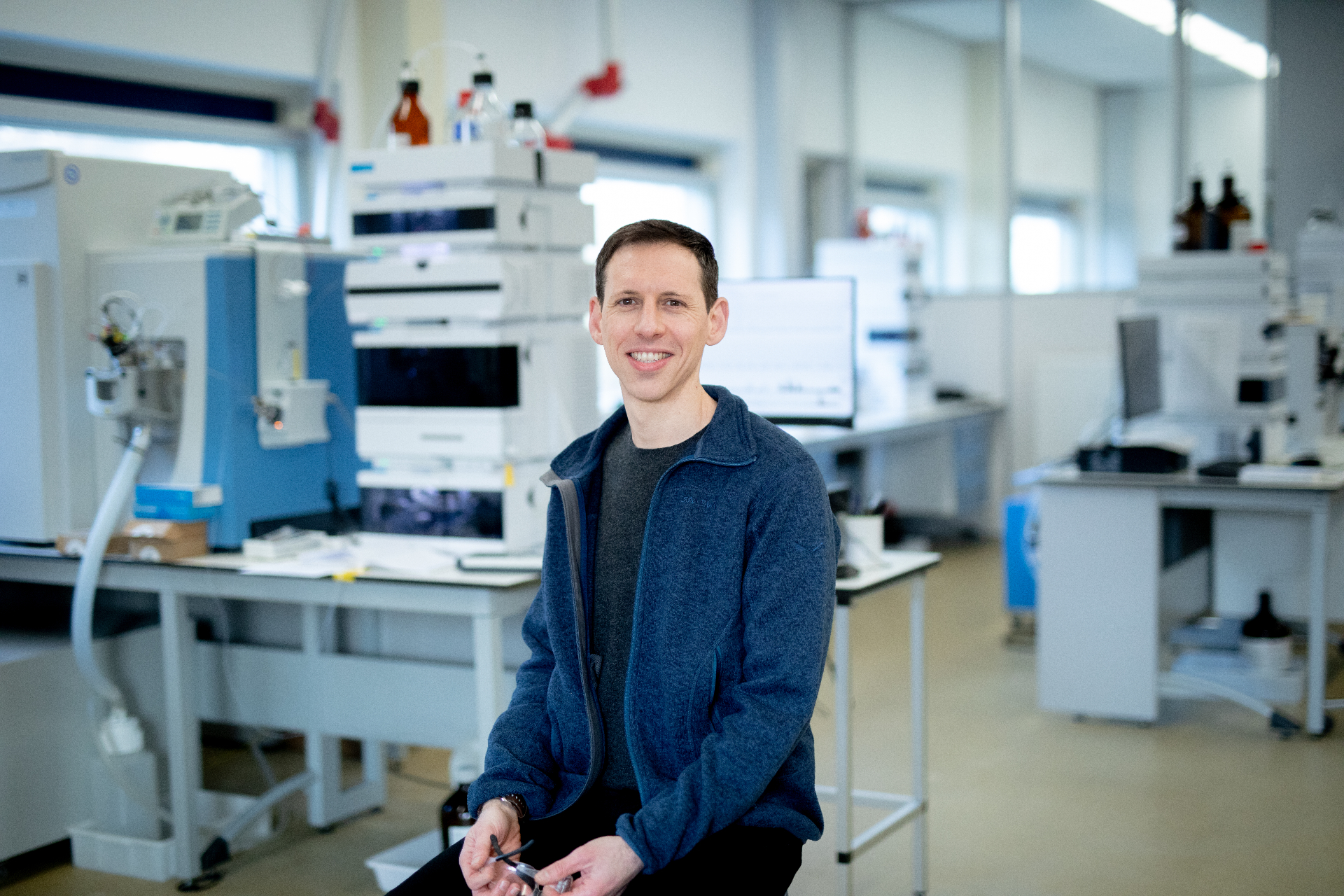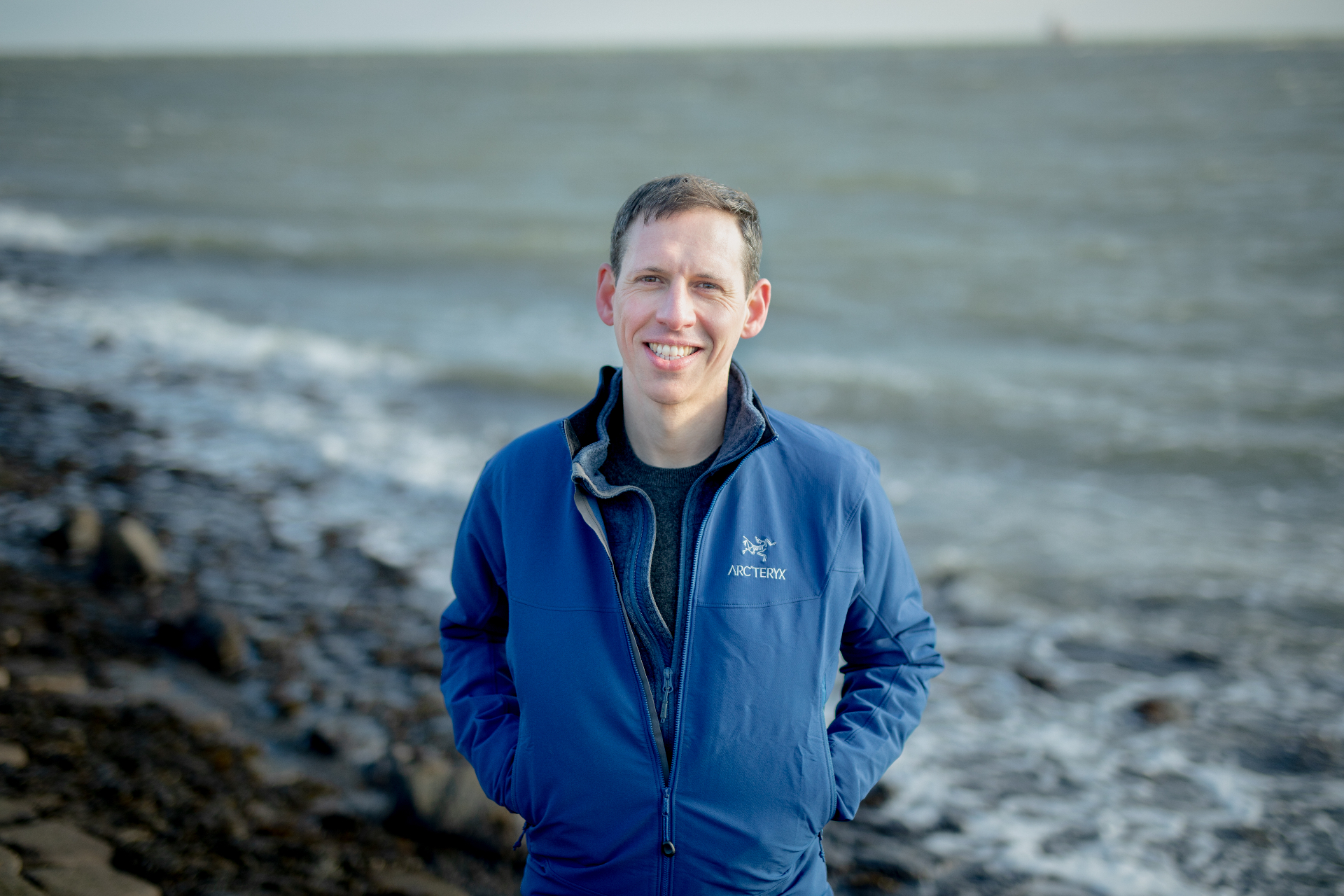Dr. Guy Schleyer
Eavesdropping on marine microbes
Guy Schleyer is a marine microbiologist and chemical ecologist, fascinated by the ways microbes communicate. “I work at the interface between these two fields”, he says. “Because, to understand how microorganisms in the marine environment communicate, it is essential to integrate both chemical and biological approaches.”
Ecological interest
The various compounds that are produced by microorganisms in the marine environment have attracted the attention of scientist for a long time. “Most of the time, this is due to their potential pharmaceutical potential, such as antimicrobial activity”, Schleyer says. However, his interest is of a more fundamental nature. “I am interested in these compounds from an ecological perspective – their involvement in mediating interactions between microorganisms.”
The base of the food web
Many interactions exist in the marine microbial world, which forms the basis of the marine food web. Bacteria can support the growth of algae, for example, but can also prey on them. Viruses can infect and kill algal populations, which can, in turn, try to defend themselves. Such interactions can determine the course of important large-scale geochemical processes in the ocean and, consequently, even regulate our climate. “This means that, if you understand the chemical signals between various microorganisms, you get a better picture of what is happening at the base of the marine food web”, Schleyer says. “It comes down to ‘eavesdropping’ on the talk between these microorganisms and deciphering it. A bacterium can sense specific metabolites produced by algae, saying: there are algae around! The bacterium can then kill these algae to obtain their nutrients, for example.”
Sophisticated analyses
This eavesdropping on the chemical communication between marine microorganisms requires sophisticated analytical instrumentation. “Recent technological advancements in mass spectrometry have made it possible to profile a microorganism’s metabolome and lipidome. This means we get a detailed description of all metabolites and lipids it produces.” Despite this progress, however, a major challenge remains, Schleyer stresses. “Understanding the precise functions of these metabolites within the microorganism’s life cycle and their ecological roles in the complex marine environment is the next level. To tackle this, we begin by studying simplified experimental systems in the lab, which consist of only a few interacting microorganisms. Compounds that play functional roles in these interactions are then used as means to detect and study microbial interactions in more complex environmental system.”
Read more +
Research interests
Half of the photosynthesis on our planet occurs in the ocean by unicellular algae, also known as phytoplankton. Phytoplankton thrive in the upper photic zones of the oceans and form the basis of marine food-webs. They influence global biogeochemical cycles in the oceans and the atmosphere, affecting global climate. In the marine environment, phytoplankton cells interact with diverse microorganisms that surround them: bacteria, viruses, fungi and grazers, as well as with other phytoplankton cells. These interactions at the microscale level shape community structure and function, alter the chemistry of the environment and impact large scale environmental processes. Studies often describe phytoplankton composition and co-occurrence with other microbes based on genomic tools, yet do not provide functional evidence for the interactions.
Chemical communication mediates microbial interactions in the marine environment. Primary metabolites and nutritional components serve as a general ‘metabolic currency’, used by most members of the microbial community. Interactions between diverse members of the community often require specificity, which is achieved by unique and specialized metabolites. Marine microbes are prolific producers of specialized metabolites and unique lipids, which have been studied mostly for pharmaceutical and commercial purposes. Nevertheless, the involvement of these compounds in microbial interactions has been largely overlooked and their ecological role remains mostly unknown.
In my research, I seek to investigate the ecological role of specialized metabolites and lipids in mediating interactions between phytoplankton and their microbiome. I combine marine chemical ecology and natural product biochemistry to address the following fundamental research questions: To what extent are specialized metabolites and lipids used by microbes to interact with each other? Are they unique to specific pairs of interacting microbes or can they manifest in diverse interactions? In addition, can these metabolites and lipids be used as biomarkers to detect microbial interactions in the environment and quantify their subsequent effect on biogeochemical cycles.
Education & Research experience
Since 09/2024: Tenure track scientist, NIOZ – Royal Netherlands Institute for Sea Research, Texel, The Netherlands.
05/2021-08/2024: Postdoctoral research, Department of Biomolecular Chemistry, Leibniz Institute for Natural Product Research and Infection Biology – Hans Knöll Institute (HKI), Jena, Germany. Research topic: Chemical communication between bacteria and unicellular algae.
09/2019-05/2021: Postdoctoral researcher and research assistant, Department of Plant and Environmental Sciences, Weizmann Institute of Science, Rehovot, Israel. Research topic: Lipid biomarkers for algal resistance to viral infection.
10/2014-08/2019: PhD, Weizmann Institute of Science, Rehovot, Israel. Thesis title: ‘Deciphering the metabolic landscape of host-virus interactions of the bloom-forming phytoplankton Emiliania huxleyi’.
09/2012-03/2014: MSc in Chemistry, ETH Zurich, Switzerland. Thesis title: ‘Analysis of peptide-modifying enzymes in a putative proteusin cluster of a cyanobacterium’
10/2009-08/2012: BSc in Chemistry and Biology, The Hebrew University of Jerusalem, Israel
Grants/Fellowships
2022-2024: HFSP Postdoctoral Fellowship (LT0028/2022-L)
2021-2022: EMBO Postdoctoral Fellowship (ALTF 192-2021)
2016: EMBO short term fellowship (ASTF 601-2015)
2012-2014: Swiss Government Scholarship (MSc)
